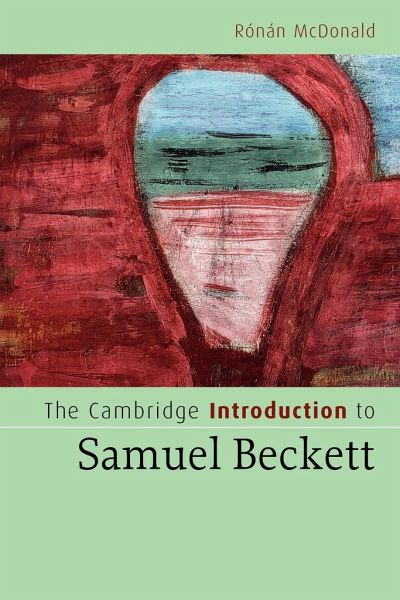
The Cambridge Introduction to Samuel Beckett
Versandkostenfrei!
Versandfertig in 1-2 Wochen
35,99 €
inkl. MwSt.
Weitere Ausgaben:

PAYBACK Punkte
18 °P sammeln!
This is an eloquent and accessible introduction to one of the most important writers of the twentieth century. This book provides biographical and contextual information, but more fundamentally, it also considers how we might think about an enduringly difficult and experimental novelist and playwright who often challenges the very concepts of meaning and interpretation. It deals with his life, intellectual and cultural background, plays, prose, and critical response and relates Beckett's work and vision to the culture and context from which he wrote. McDonald provides a sustained analysis of t...
This is an eloquent and accessible introduction to one of the most important writers of the twentieth century. This book provides biographical and contextual information, but more fundamentally, it also considers how we might think about an enduringly difficult and experimental novelist and playwright who often challenges the very concepts of meaning and interpretation. It deals with his life, intellectual and cultural background, plays, prose, and critical response and relates Beckett's work and vision to the culture and context from which he wrote. McDonald provides a sustained analysis of the major plays, including Waiting for Godot, Endgame, and Happy Days and his major prose works including Murphy, Watt and his famous 'trilogy' of novels (Molloy, Malone Dies, The Unnamable). This introduction concludes by mapping the huge terrain of criticism Beckett's work has prompted, and it explains the turn in recent years to understanding Beckett within his historical context.




